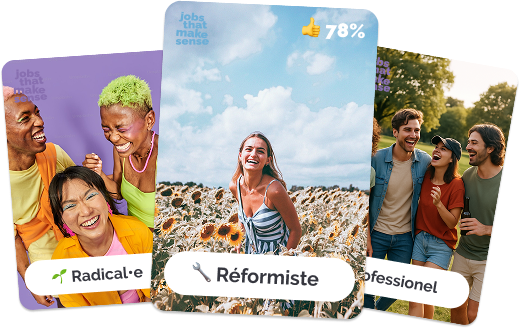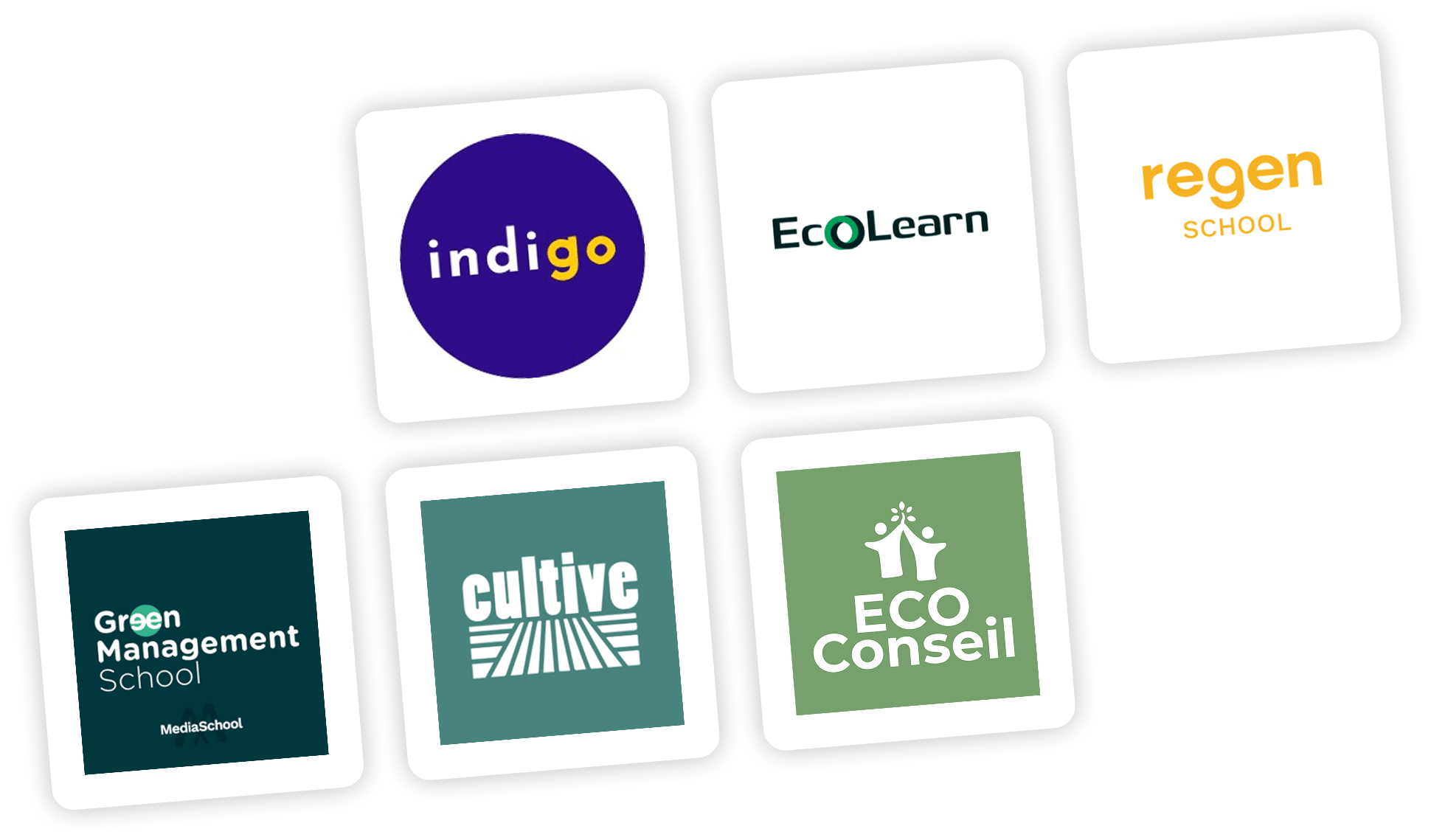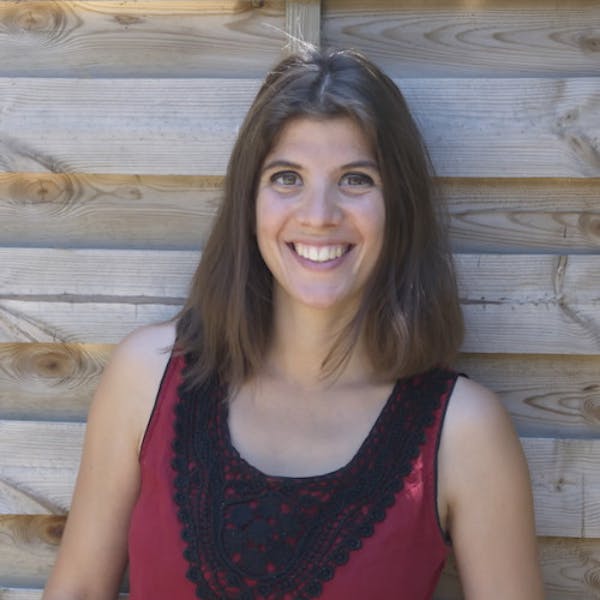Guide for a purpose-driven career change
Where do I start to find where to go?
Going to an impact job is similar to any retraining in many ways.
One difference is that the needs of the world take precedence more. Alignment must be as much with oneself as with the outside world. The question of impact, usefulness, contribution and values also takes on special significance.
Another difference: the range of possibilities, both in terms of professions and subsequent outlets. Many “impact” jobs are done in the SSE, in associations, in small structures, etc.
In this article, I share with you the main elements to consider in order to move forward in a professional direction that makes sense and helps to meet the challenges of the world.
Go through them and write down what you would need to dig into, what lights a little light in you, thinking about what actions you can take to dig deeper.
To write it, I drew on my years of experience supporting people in their retraining at Bloomr, in particular via our skills assessment.
These milestones are not obligatory passages. The path to a pro trajectory change is not linear. There is no miracle recipe that you can follow to the letter, ingredient by ingredient and step by step, to succeed – tadaaa! – to the expected result.
The path to an impact job is unpredictable. Sometimes long and winding, sometimes surprisingly short when seizing an unforeseen opportunity, sometimes rugged, sometimes fluid and peaceful. Often it is a mix of thought and action, trial and error, encounters, serendipity, compromise.
PREPARE THE TERRAIN

1- Take stock
Before leaving head on, I advise you to take a breather to take stock of your situation, your needs, your motivations and this momentum that pushes you to go for an impact job.
It is about putting down what weighs you down, carries you, gives you hope and calls you. This report will help you to start on a good basis and to set objectives for the rest of your reflection.
A few questions to ask yourself:
- What emotions go through you when you think about your current situation and your desire to change?
- Why does your professional situation no longer suit you? What's stuck? (ex: the content of your work, the environment, daily life, relationships…) What do you miss? (e.g.: flexibility, connection, the feeling of learning, the feeling of being useful, pleasure, etc.)
- What would you like instead? What do you concretely expect from a change at the professional level? What do you aspire to?
- What might happen if you do nothing?
2- Explore your need for meaning
The quest for meaning holds the palm of the reasons that lead the people we support at Bloomr to want to change jobs.
This famous quest for meaning often arises from a need for realignment between one's values and the work one does, but it can take on a multitude of meanings, depending on the person. Meaning at work draws its source from everyday life as much as from the purpose of one's work.
Ensuring balance, respecting your own needs, your values, your priorities, your desires and your mode of operation are just as important for sustainably cultivating meaning at work as the content of your mission or the organization for which you will work.
A few questions to ask yourself:
What are your driving values? Those who guide you on a daily basis? And your anti-values?
What meaning do you want to give to your life? What does “success” mean to you, professionally and personally? What do you want to accomplish?
What about your current job no longer makes sense to you? At what level do you feel a lack of alignment with your values? What would you need to realign yourself?
The tool : the test of values
3- Explore the notion of impact
When we talk about “impact jobs”, the term “impact” is often used as a catch-all.
Impact, okay, but on what? On which ? At what scale? What purpose ?
A few questions to ask yourself:
- Concretely, what do you want to contribute? What cause do you want to advance?
- By whom and on what scale?
- Do you want the organization you work for to have an impact, even if you don't necessarily contribute directly (for example, by being an accountant for an NGO that cleans the oceans) or do you need, on the contrary , to directly correlate your mission to this positive impact (by cleaning up the oceans yourself)?
- What will tell you whether or not the impact of your work is positive?
KNOW YOURSELF BETTER

When you build your professional life, especially at the beginning, the influence of others plays a lot on the choices you make and the directions you take.
The expectations of parents, even the feeling of family duties, the orientation of friends, the ideas received about work, the beliefs and injunctions that have been transmitted to us throughout childhood and adolescence...
To take charge of your professional life, you need to free yourself as much as possible from everything that does not belong to you, to reconnect, really, to you, your values, your desires, your needs, your convictions, your motivations deep, your tastes...
It's a lot of introspection to get to know you better and be able to make your own choices. This work is valuable for boosting self-confidence and making you feel comfortable talking about yourself.
4- Free yourself from the brakes
The path to a fulfilling and meaningful professional life is paved with insecurities, fears and beliefs that sometimes prevent you from moving forward serenely. It's normal...but it's not inevitable.
A few questions to ask yourself:
- What is holding you back, weighing you down, scaring you in your desire for change? Fear of making a mistake, fear of the judgment of others, of insecurity, of failing, of starting from scratch, of financial risks, of going back to school, of the unknown, of not being able to, of the reactions of the surroundings…
- What's stopping you from taking action?
5- Your desires, ambitions and aspirations
- What life do you wish to have? What are your priorities?
- What is your vision of success?
- What are your dreams ?
- How does work fit into this life? What place do you want to give it?
6- Your personal needs
- What are your personal obligations that you must take into account to plan your professional life? For example, do you have geographic requirements? Family?
- What does this mean in terms of flexibility? Hours? Of rhythm? Of organization?
- What does this imply in terms of financial need? How much do you really need to live the way you want? What would be your ideal salary? And your subsistence minimum?
7- Your professional needs
- What is essential for you, on a daily basis, to feel good about your job?
- What kind of people do you want to meet on a daily basis (colleagues, clients, partners, etc.)? What type of managerial relationship do you want to have?
- What do you want to be recognized for? By who ? How? 'Or' What ?
- What does your ideal work environment look like (location, setting, corporate culture, working conditions, hours, atmosphere, etc.)?
- How much do you need to be stimulated, to learn continuously in your work? On what subjects?
- Are there essential elements, sine qua non conditions for you to accept a job?
For further : https://blog-bloomr.org/2020/08/09/bon-environnement-travail/
8- Your resources
Assets, talents, skills, qualities, abilities, know-how, know-how… so many resources that make you unique, and from which you will be able to draw to express your potential.
Identifying them is not always easy, but essential to determine how you want to express your resources and put them to use in your work.
A few questions to ask yourself:
- What can you do ? What do you do easily? Naturally?
- What do you like to do in what you can do?
For further : https://blog-bloomr.org/tag/dossier-talents/
9- What drives you
- What are your tastes ? What do you like to do ?
- What tasks, what activities interest you? attract you? Gives you pleasure? Make you feel good, in your element?
- What drives you? Give you energy? Make you feel alive?
DEFINE YOUR PROJECT

The big question when thinking about a professional change is of course: concretely, where to go?
A good knowledge of oneself and one's aspirations provides valuable elements to guide one's exploration and make one's choices.
Finding leads is not always easy, however.
10- Understand the needs of the world
To direct you to a job with an impact, your desires, your strengths, your centers of interest are of course decisive criteria for setting your professional course, but if you want to have a truly positive impact and in tune with the needs of the world, Understanding them well is an essential step.
A few questions to ask yourself:
- In relation to the impact and contribution you want to have, what are the needs in terms of skills and employment?
- What is being done today to tackle the issues that are important to you? What could be done more or differently?
- It may be a good idea to zoom in on your territory. What issues related to ecological and social transition are specific to your area?
For further : explore Post’R tool
11- Open your horizons
As we know, it is very difficult to broaden one's horizons beyond the known, to bring out paths very far removed from one's daily life, one's entourage or from what one is used to hearing in the media or culture.
I advise you to :
- Provoke encounters, especially with people you are not used to seeing. Ask them about their job, their daily life, their challenges. Use your close network, dare to contact strangers on Linkedin, attend fairs, networking events, associations...
- Get inspired by testimonials found in the media via podcasts, shows or even films
The idea is to raise the antennas to capture everything you can around you, without filtering at first, taking what comes and what it inspires you.
Over time, you will collect ideas for professions, sectors, fields that appeal to you or seem aligned with what you are looking for.
This can be a radically different track from what you have done so far, such as an idea of internal mobility in your company, a side project, an activity in addition to what you already do (slashing), or an entrepreneurial project. , a change of organization, or the transition from salaried to freelance…
Write down everything, everything, everything that crosses your mind.
For further : https://waystoshift.com/metiers-de-la-transition-ecologique-et-sociale-sinspirer-de-parcours-pros-inspirants/
12- Sort out your ideas
When you have lots of ideas, lots of desires: how to sort them, decide between them and choose?
To evaluate the different ideas, you need to dig into:
- Your understanding of the business and the sector. For this, nothing beats a good business survey to discuss with professionals.
- Opportunities, by zooming in on the areas that interest you. Who recruits ? What type of position? In what conditions ?
- The feasibility of each project. In relation to your current skills, training, etc. what do you need to make this project a reality? Are you able to get it? In what time frame? Averaging ? Is this acceptable for you?
- The financial implication of this reconversion: how can you finance it? what does this imply ? What devices or assistance do you have access to to help you cover the financial cost of this retraining?
- The adequacy between your project and your desires, your constraints, your priorities, your strengths… Particular focus on the entourage: what are the potential consequences of this project on your personal and family life?
- The attractiveness of the project: how much does the prospect of this project inspire you and make you want to? What do you like, attract you? What makes you doubt?
START THE NEXT STEP

13- Define a project
Concretely, what direction do you decide to take your next step?
Put words on your project to be able to present it around you, and talk about it as soon as the opportunity arises to create opportunities!
14- Realize your project
You need to define an action plan, to realize the project you have just defined.
What steps do you need to go through for this project to succeed?
The path can sometimes seem very arduous to achieve your goals. The technique of small steps is then very useful: cut the steps into small actions, spread over time.
PUT ALL THE CHANCES ON YOUR SIDE

Because the process of professional life change can take time, you need to stack the odds on your side to go the distance.
Two keys: regularity and support.
To begin, free up regular time to move forward in your thinking, for example by planning time in your agenda.
15- Find allies
To go the distance on a professional life-changing project, it is important to find allies: people you trust, who will be able to give you constructive and benevolent feedback to help you move forward.
The resource: the Paumé.e.s community
16- Have you accompanied
Several solutions exist to be accompanied by professionals. Skills assessment, coaches, public services…
The most classic way to support you in your reflection is the skills assessment. Fundable by the CPF, you will find a multitude of different formulas...individual, collective, face-to-face, remote...
Pôle Emploi and APEC for executives also offer support services if you meet the criteria to benefit from them.
The resource: jobs_that_makesense website presents several skills assessments, including our Bloomr skills assessment, which has the particularity of being 100% remote and accompanied by individual coaching sessions.
I can't resist the urge to give you two last pieces of advice for the road:
Be in the action
We tend to mentalize the retraining process. Ask the right questions, find the right answers, fill in a column table for and against, give points, do the calculations and that's it! In reality, there is a lot that is played out in action, in lived experiences, encounters, unexpected opportunities. At some point, it is important to move away from the screen, the paper, the pen, and the analysis to test life-size. It is a question of posture, which combines curiosity, audacity, optimism and movement.
Follow your intuition
Again, there's the plan you laid out on paper…and the confrontation in real life. The action plan is essential to draw the road to your goal, but it is not a fixed route from which you cannot stray. It's a guideline.
Also leave room for serendipity, happy coincidences, the nudges of life that may make you take shortcuts or cross roads.
Need to talk about it?
👉 You can make an appointment directly on the Bloomr page on jobs_that_makesense!
For further
👉 There is no age to start: make a professional retraining at 35, 40, 50
👉Make your resume for a professional retraining
👉How to do a professional retraining when you are on a permanent contract?
Take action
👉 Training in the professions of ecological and social transition



